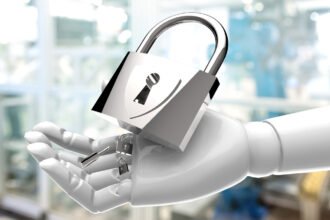Today?s classroom isn?t just a place for education ? it?s also a laboratory, and teachers are expected to collect huge amounts of data, with the goal of improving learning outcomes. Despite the best intentions, however, this emphasis on educational data is especially onerous for already overworked teachers, meaning they need better tools to assist with collecting that data. That?s where new recording strategies can help.
Analytics From College To Kindergarten
Colleges were among the first to place a heavy emphasis on analytics because of their greater resources and research-driven agendas; and as such, they were the first to realize the value of educational data. For example, facing low graduation rates, colleges examined student records and discovered that students were struggling with English classes, even as they were thriving in other subject areas. Based on that data, colleges were able to address shortfalls in entering students? reading and writing skills and develop programs to enable them to succeed. Unlike with college students, it can be much more challenging to collect and assess data on younger children, but schools and researchers are developing new strategies to this end that tend to be particularly reliant on technology. For example, many schools are testing classroom recording systems using audio and video data. These systems employ multiple cameras, both fixed and PTZ, to record classroom activities and analyze student engagement and response. Teachers and researchers can then play back classroom sessions to identify trouble areas. Having classroom recordings can also help observers determine whether problems are a result of instructional issues or challenges an individual student is having.
Introducing AI
While recording the classroom can provide valuable insights, they often require an enormous amount of human labor to analyze, which is why a growing number of schools are testing out AI systems to supplement their data collection and analysis programs. For example, using the AI-based program Thinkster, teachers can see how students think through a problem, allowing them to identify why they might have gotten a problem wrong and what interventions are necessary. Microsoft has also developed a machine learning system that can assess whether a student is on track to graduate and identify which students need support to meet their educational goals.
Immersion For Engagement
A growing portion of classroom instruction today is done with students working independently on computers so that their work can be individually paced to meet their needs. Over time, though, these independent lessons can become dull and students may not remain engaged. That?s why tech-driven education companies are developing immersive education programs that also record student data. These programs often rely on the principle of gamification ? making lessons more like video games ? and can not only assess student progress, but also determine what elements of the ?game? motivate students to engage in their lessons and perform better.
Eliminating Data Silos
Perhaps the most valuable contribution of technology in education is the ability to eliminate existing data silos. In the past, teachers collected information on their own students and districts collected small amounts of information based on standardized tests and graduation rates, but most data remained isolated. However, using today?s big data systems, districts can integrate data from different sources. This allows them to make better decisions regarding curriculum changes, class sizes, and similar concerns based on big-picture information.
Looking Forward With Edtech
Edtech is the future of learning and teachers can expect to use personalized, high-tech solutions in the classroom with greater frequency in years to come. This is a result not just of the demand for greater digital literacy among students, but of these tools? ability to meet each students? needs with fewer resources. It?s hard to train and recruit a larger pool of top teachers to reduce class sizes, but it?s easy to put a laptop in the hands of every student. Another reason edtech solutions are so popular in today?s classrooms is that students are using more technology before they reach the classroom, and exposure to technology is changing how students learn. Some of that is purely mechanical ? young children are less prepared to cut and write than they were ten or twenty years ago because they spend less time honing their fine motor skills through play. On the other hand, they?re typically as prepared to learn to read as students were before, if not more so. Edtech also makes it easier for teachers to informally assess young children; it can be difficult to give preschool and kindergarten students normal tests, but they may use edtech programs with ease. Data-driven education benefits students, teachers, and administrators, and it?s surprisingly unobtrusive when introduced into the classroom. Best of all, though, these programs let teachers get back to what they do best ? teaching. Computers can collect data and even modify lessons, but only teachers can shape young minds and help students develop a passion for learning.








